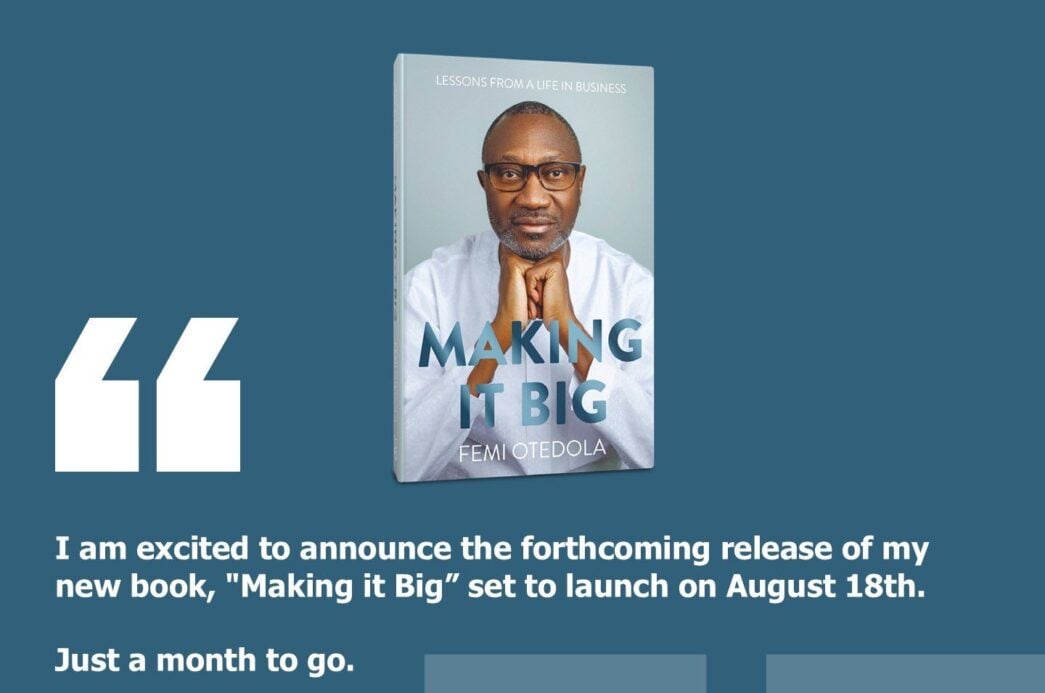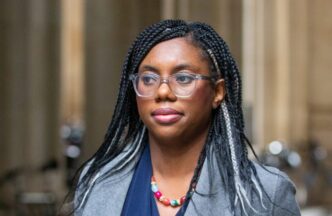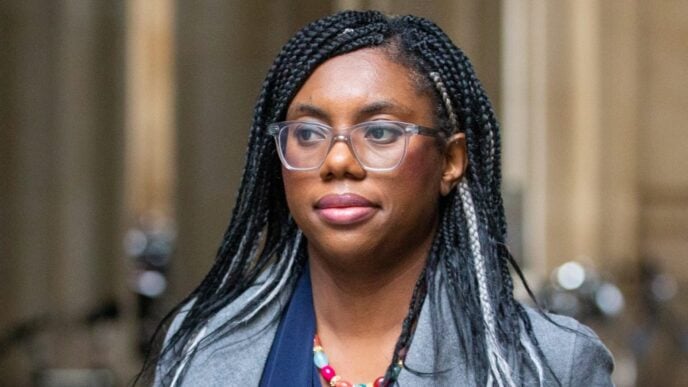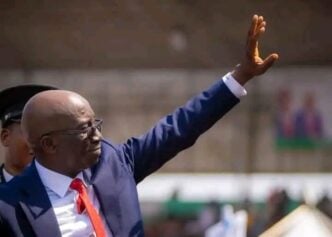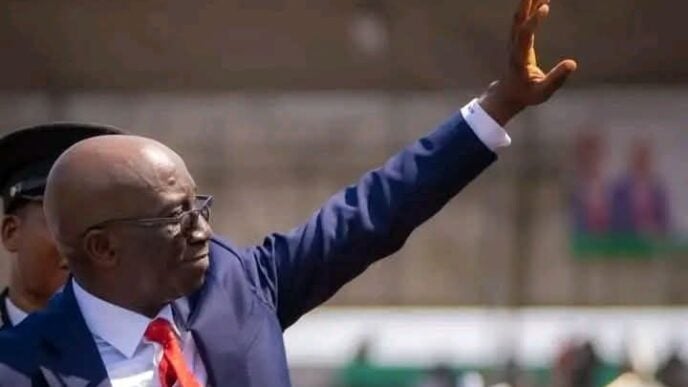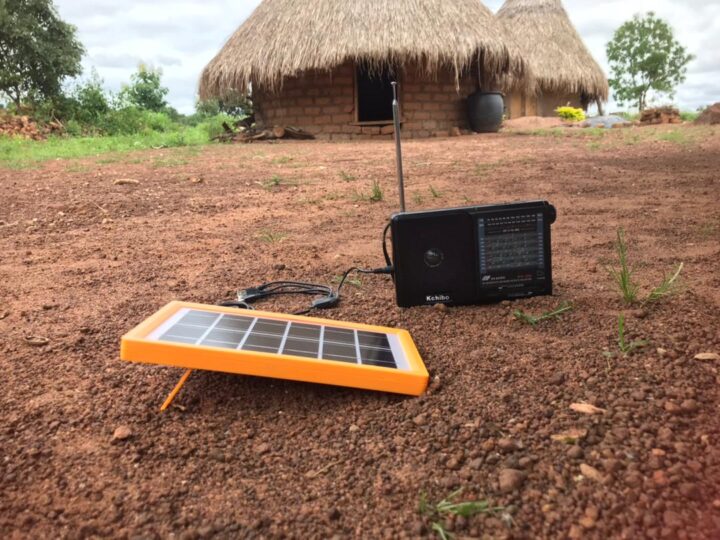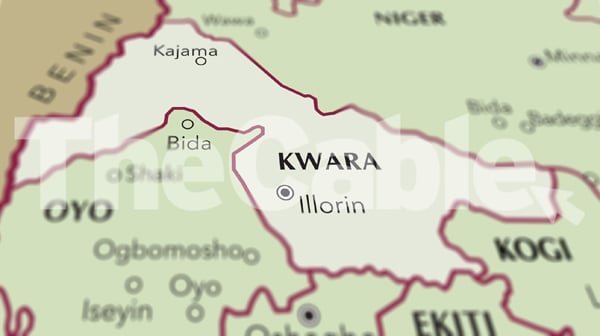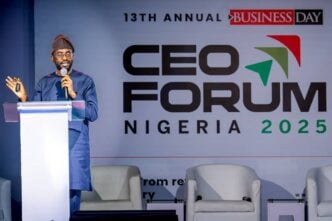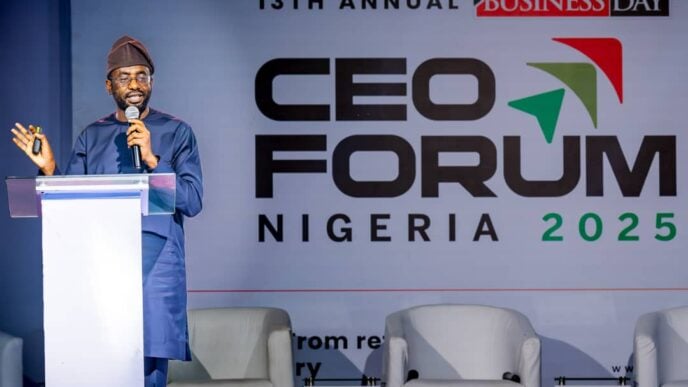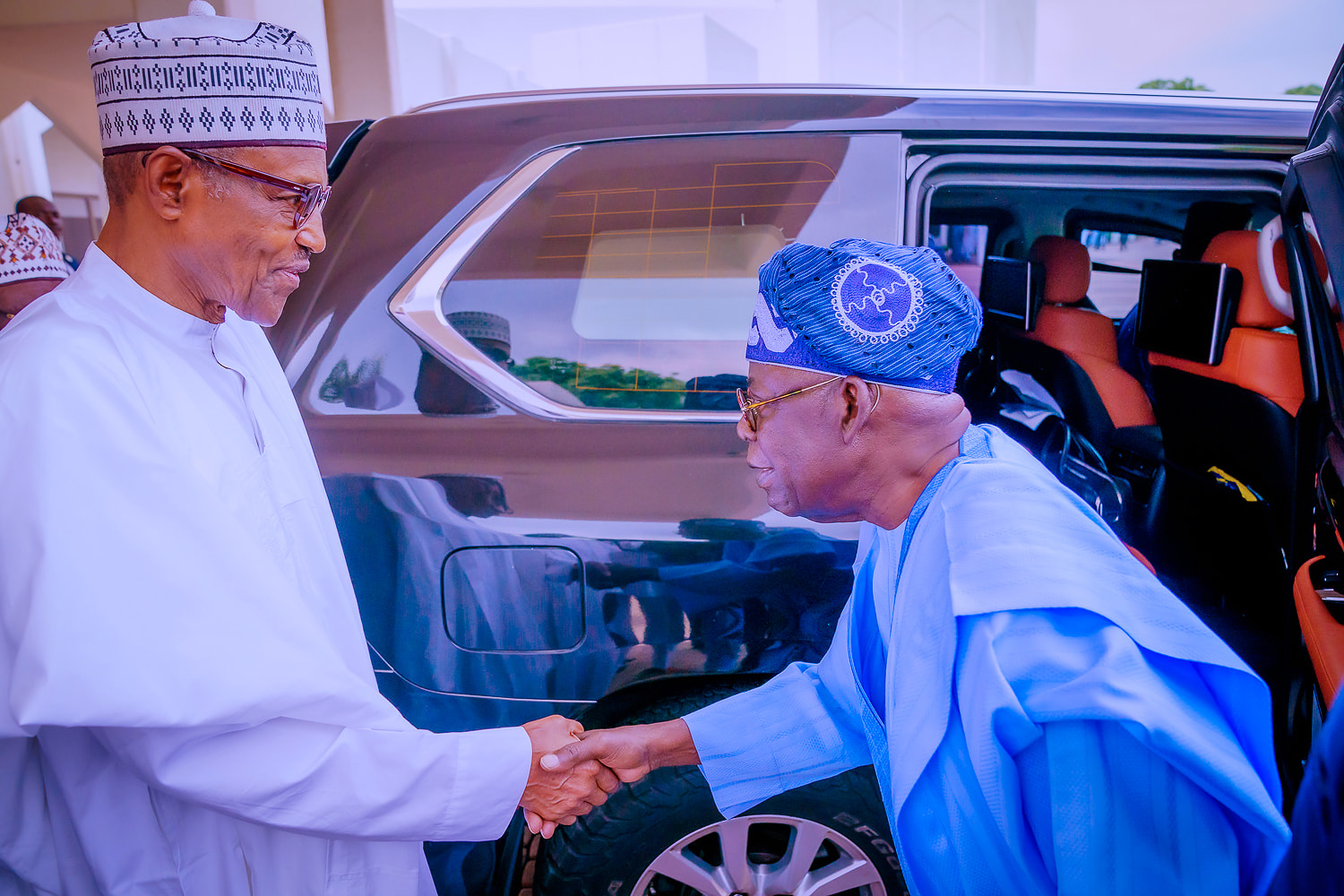BY FEMI PETERS
When billionaire, Femi Otedola, announced his forthcoming book, ‘Making it Big’, the digital streets of Nigeria erupted in a familiar symphony of discord. A man worth $1.7 billion, according to Forbes, offered to share the chronicles of his wealth, and Nigerians responded across the spectrum, from reverential awe to biting cynicism. The reactions revealed more about our national psyche than any sociological treatise could and exposed a dangerous trap that threatens to cage an entire generation.
This response quietly unmasks a deeper ache: the simmering belief that success is reserved for those born with silver spoons, that wealth creation is an exclusive club with membership determined at birth. It reawakens an old instinct to either anoint the wealthy as untouchable gods or denounce them as frauds, depending on how closely their stories mirror our own struggles. But beneath this polarisation lies a more insidious poison, the conviction that without privilege, prosperity is impossible.
The raw mechanics of inequality become visible in simple tableaux, and too many Nigerians use these scenes to construct their own mental prisons. Two young men illustrate this divide perfectly. One, let’s call him Salako, requests a laptop from home and receives it in days. The other, Segun, must crowdfund for the same, turning to social media like a digital mendicant. While Salako prepares to monetise his skills in the UK, Segun wrestles with visa delays, proof-of-funds hurdles, and the suffocating logistics of limited means. The starting lines in life’s race often exist on different continents.
Advertisement
But here’s where the trap springs shut: Segun looks at Salako’s advantages and concludes that his own dreams are dead on arrival. He internalises the narrative that success without privilege is fantasy, that his modest background is a life sentence to mediocrity. What began as an observation of inequality becomes a self-imposed limitation, a privilege prison with walls built from his own despair.
Consider Davido as another case study in inherited leverage. His father reportedly bought out his first professional contract, ensuring he retained full ownership of his music from the outset. That singular act of foresight preserved his autonomy and future earnings. Contrast that with the tragic arc of Mohbad, whose parents reportedly pleaded with Naira Marley to pardon their son so he could return to a label that never truly embraced him. While some are shielded by generational insulation, others must negotiate their dignity just to stay afloat. One navigates the industry with leverage; the other, with apology. Same dream, different scaffolding.
The danger isn’t in recognising these disparities, it’s in letting them become prophecies of defeat. Too many young Nigerians witness such contrasts and surrender before the battle begins, convinced that success stories from humble origins are either myths or miracles beyond their reach.
Advertisement
Yet, if you can read these words, you possess privileges that millions would trade their souls for. Your literacy is a superpower in a nation where 38 million adults cannot read. Your access to the internet places you among the global elite. Your education, however modest, is a foundation that generations of your ancestors died dreaming their children might stand upon.
But privilege blindness works both ways. While the wealthy often cannot see their advantages, the struggling often cannot see their own assets. You may not have a trust fund, but you have time, the most democratic resource on earth. You may not have connections, but you have the internet to build them. You may not have capital, but you have curiosity, creativity, and the capacity to learn. These are not consolation prizes; they are the raw materials of transformation.
In the architecture of success, some are handed steel frameworks while others are left to build with straw. But even straw, when skillfully handled, can bear weight. The question is not whether you have advantage, it’s whether you’ll maximise the ones you do have or remain paralysed by the ones you lack.
Bishop David Oyedepo rose from modest beginnings to build one of Africa’s most formidable religious and educational empires. Cosmos Maduka began as an apprentice and became an industrial force. Jan Koum once swept floors before founding WhatsApp. Oprah Winfrey was born into poverty so deep it would break most people. These stories, however divergent, affirm the same truth: possibility lives where vision meets discipline, regardless of the starting line.
Advertisement
It must be said, however, that none of these people made it by grit alone, and this is crucial for those trapped in the privilege prison to understand. They learned the language of capital, the grammar of leverage, and the syntax of strategic thinking, fluencies that privilege often teaches early but that can be acquired by anyone willing to study. Jan Koum may have arrived in America with nothing, but his billion-dollar sale to Facebook revealed a profound understanding of principles that circulate in elite networks. The difference is that he learned them through hunger rather than inheritance.
This brings us to a crucial question that divides Nigerian discourse: can we learn from those who began with advantages we never had? Many argue that only those who have suffered can credibly teach wealth creation, that privilege invalidates wisdom. That belief may carry emotional resonance, but it shortchanges insight and perpetuates the very prison we seek to escape.
Wisdom is not exclusive to one kind of messenger. Doctors need not survive every disease to heal. Pilots need not build aircraft to fly them. Competence comes from perspective, training, and experience, not from the circumstances of one’s birth. The young Nigerian who refuses to learn from the privileged because of their starting advantages is like a drowning man who refuses a rope because it wasn’t thrown by someone who nearly drowned.
Wealth creation follows observable patterns: timing, structure, leverage, strategic thinking. Aliko Dangote’s fortune is the product of application, not just access. His mastery of supply chains, market behaviour, and capital efficiency didn’t arrive by accident; it was cultivated through study, practice, and relentless refinement. The wise learn to separate the source of knowledge from its substance. A principle retains its value regardless of the comfort or adversity surrounding its discovery.
Advertisement
When Otedola’s book hits the shelves, I intend to read it. I’m not trying to become an Otedola, but to understand how he structured risk, identified opportunity, entered industries, and navigated regulatory hurdles. Warren Buffett once read every investing book in his local library to absorb thought processes. He was chasing insight, not trying to imitate others. He understood that knowledge is the ultimate equaliser, the one advantage that can be acquired regardless of your father’s bank account.
Every wealthy individual tells two stories: one of circumstance, the other of habit. Strategic thinking. Curiosity. Delayed gratification. Relationship-building. These are universal currencies that transcend background. The goal isn’t to mimic the wealthy word-for-word but to extract what works and repurpose it for different contexts, different starting points, different dreams.
Advertisement
I once heard a young entrepreneur say he would choose six months with Dangote over a million dollars. That stayed with me. It revealed a deeper truth: knowledge compounds faster than cash. The young man understood the true exchange rate between knowledge and wealth and why the privileged prison is ultimately self-imposed.
Strategy alone, however, doesn’t account for all success. I’ve encountered moments that defy logic. Providence, some call it. Grace. Timing. Alignment. The book of Ecclesiastes reminds us, “The race is not to the swift, nor the battle to the strong.” I revisit that verse often, especially when my best-laid plans derail without warning. But preparation positions us for fortune when it comes calling.
Advertisement
As a nation, we too often meet wealth with suspicion, but suspicion without learning is just another form of self-sabotage. We can interrogate without hostility, listen without surrender, and learn without losing our voice. The wealthy must also democratise their wisdom, writing books, sharing strategies, mentoring beyond their bloodlines. Sustainable wealth isn’t just inherited; it is taught, transferred, explained. Families that maintain wealth across generations prioritise knowledge transmission alongside asset distribution.
But the responsibility doesn’t rest solely with those who have arrived. Those still climbing must reject the privilege prison that whispers that success is impossible from their starting point. They must become synthesisers, gathering insight, adapting strategies, and maintaining the humility to learn from anyone with something to offer—including those whose journeys began on higher ground.
Advertisement
The criticism of Otedola’s book, while understandable, misses the point entirely. Writing can be a form of gatekeeping, but this kind opens doors. Every strategy demystified, every mistake documented, every principle distilled adds to the architecture of public understanding. The alternative is dangerous: a hoarding of insight that serves only one bloodline while others remain trapped in the privilege prison of their own making.
If you are young and educated enough to read this piece, if you have the internet access to engage with these ideas, if you have the health to pursue dreams and the time to build them, you already possess more privileges than billions. Stop counting what you lack and start compounding what you have.
Things are hard without certain privileges, but they are not impossible. The myth of impossibility is the strongest bar in the privilege prison, but it’s also the most fragile. It shatters the moment you decide to build from where you are, with what you have, toward where you want to be.
The privileged carry the burden of stewardship; the dispossessed carry the fire of renewal. Both are necessary architects in the cathedral of human progress.
Femi Peters writes from Abeokuta, the Ogun state capital. He can be contacted via [email protected]
Views expressed by contributors are strictly personal and not of TheCable.

